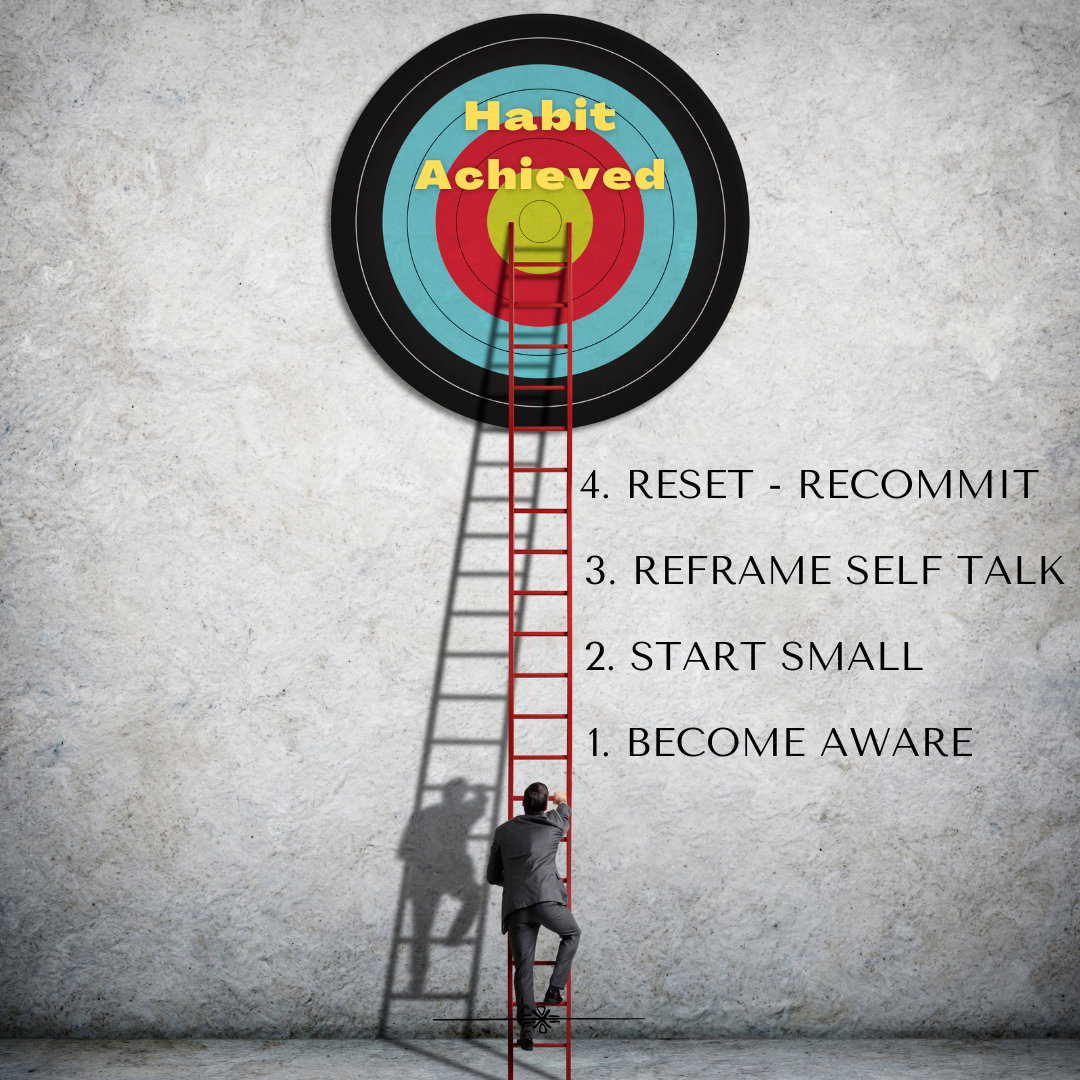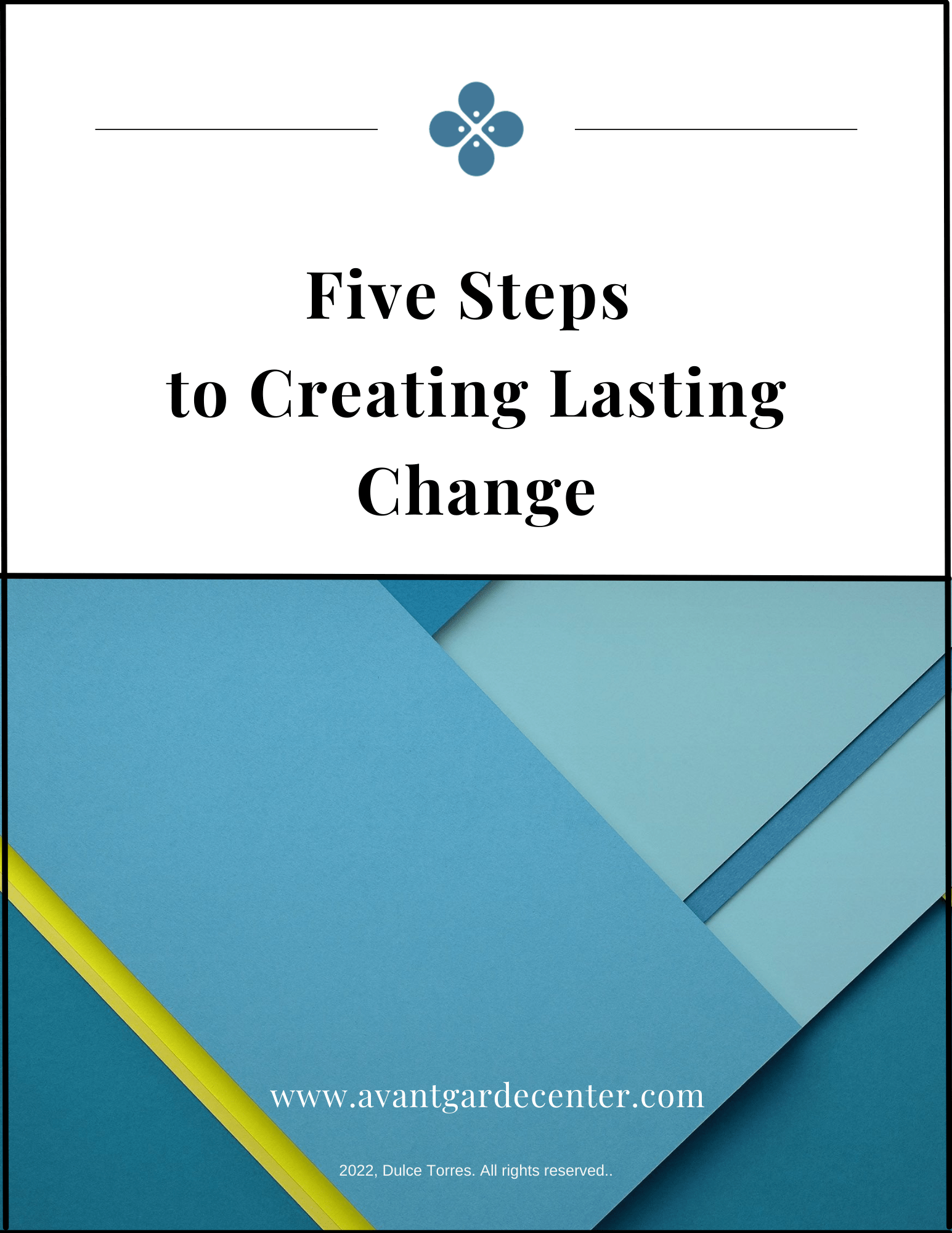Changing Habits for Someone with ADHD
ADHD and Executive Function Disorder in adults adds a different level of challenge to achieving new habits. Here’s a few ways to help you change a habit.
What’s behind habit formation and how to change a habit?
As Atomic Habits author James Clear writes:
“Changes that seem small and unimportant initially will compound into remarkable results if you’re willing to stick with them for years.”
Forming new habits is a complex and challenging mental, emotional and physical process. It involves more than a simple three-step process. And, usually takes longer than most people want it to.
Let’s talk about the roadblocks which could derail your effort. For those individuals with ADHD or Executive Function challenges, I’ll point out how you have superpowers to take advantage of. It’s also helpful to understand the journey to create new habits.
Prepare for Roadblocks
Inevitable roadblocks hit when we’re working on change. We know “good intentions” or “sheer willpower” will not move us closer to a habit change in the long run. Take the time to consider why you haven’t been able to sustain the desired change.
– Not enough time scheduled to make this happen?
– Really committed?
– Fear or Shame?
– Judgment or Guilt?
– Do you need a trusted friend or two to hold you accountable?
Reflect honestly on what’s holding you back. And let’s consider what you can do differently this time to stick with this new habit.
Answer the WHY Behind the Goal
I believe reaching the change we want begins with finding the deep seeded reason you want it. Many times, something bigger than ourselves is what takes us to the next level. Become aware of the emotion attached to the change.
It may be hard to admit the real reason we want something. At the time, we answer questions in a socially acceptable way only to experience the reason, and change is short-lived. What’s your more resounding answer? I want to lose weight to spend more time with my grandchild. Live longer. Ride a bike. Walk without feeling out of breath.
Imagine you want to lose weight to be healthy. Go deeper. Ask yourself, “Why do I want this?”. Often you’ll find a more honest answer. You may realize the real reason is different than health. Possibly to have more confidence. Or be a specific size or shape to help you feel more confident.
Let’s get real with your WHY. Write down every reason you want this new habit.
Understand What It Will Take to Have What You Want
You’ve addressed why you want this new habit. Now, what it will take to create this change? Knowing this helps you stay focused and motivated because road bumps will appear.
Your thoughts are critical to your success. Some thoughts will be the truth, and many will be negative untrue thoughts. Write down every thought – even the most insignificant thoughts when you ask yourself:
– will I be able to achieve this new habit
– what’s different this time
– what will my family and friends say about me
– do I really want to do this because if I do … or if I don’t…
For example, others criticize me for fear of failure, shame, or pain.
Manage your expectation on how long it will take to reach your goal.
Identifying the date and time you want to reach this goal is essential. Be specific. Don’t shy away or be vague. Also, detail the specific behaviors and time you’ll invest in creating this new habit.
Let me say something about discipline. Delayed gratification is resisting the impulse to choose an immediate reward instead of obtaining a higher-valued reward in the future. Statements such as “I don’t have time to eat” or “I can’t eat because I’m too busy” stop you from doing what you want. Accept that something needs to change, and “You,” “I” can only change ourselves.
ADHD and New Habits
ADHD is your superpower. You have the ability to hyper-focus, and you’re creative and intelligent. I suggest setting a goal by not trying to change yourself. Instead, work with your strengths. Make accommodations by looking at your challenges honestly and gracefully.
Executive function is a group of complex mental processes and cognitive abilities such as working memory and impulse inhibition that control the skills such as organizing tasks, managing time, and solving problems required for goal-directed behavior.
Charles Duhigg, Author of The Power of Habit, says, “Neuroscientists have traced our habit-making behaviors to a part of the brain called the basal ganglia. It also plays a key role in developing emotions, memories, and pattern recognition. Decisions, meanwhile, are made in a different part of the brain called the prefrontal cortex. As soon as a behavior becomes automatic, the decision-making part of your brain goes into a sleep mode of sorts.”
The reality is everyone approaches their why and the change process bringing their unique motivations, purpose, strengths, and weaknesses. I encourage you to embrace who you are. Learn to focus on leveraging your strengths and minimize your weaknesses with a fresh perspective.
What is Rejection Sensitivity Dysphoria (RSD) ADHD
According to ADDitude, RSD is extreme emotional sensitivity and pain triggered by the perception that a person has been rejected or criticized by important people in their life.
It may also be triggered by a sense of falling short – failing to meet their own high standards or others’ expectations. Or it could become a challenge for an ADHD person who is working to change behaviors to reach a new habit.
Payoff Of Staying Stuck In Old Habits
Old unhealthy habits like drinking, drugs, smoking, overeating, being late, procrastination, yelling, and more cause humans to suffer. The good news is .. they’re completely avoidable.
Stop the negative thoughts when you identify find yourself saying, “I’m always late,” “I worry all the time,” “I can’t stop myself,” or “that’s my impulsivity.”
You’ve identified yourself with the bad habit. The truth is habits are learned and can change. They are what you do, not who you are.
Your maladaptive habits pay off for you. Although they cause pain in the long run, you get immediate gratification – a reward. And then you repeat the same behaviors. Recognize any of these?
- Waiting until the last minute to complete a project.
- Ignoring the alarm you set up to either stop or start a task.
- Feeling overwhelmed, you don’t do what’s tedious or difficult.
Comfort. You know your habits because they’ve been part of you for years. Good or bad. Many times, it’s because a feeling is attached to the experience.
These reasons are not reasons not to pursue your goal and new habits. Be aware, and then choose differently.
Four Steps to New Habits

1. Prepare for Roadblocks
2. Answer the Why Behind the Goal
3. Understand What It Will Take to Have What You Want
4. ADHD and New Habits
5. Be Aware of the Payoff Of Staying Stuck In Old Habits
6. Four Steps to New Habits
Of course, we all fail as we work to create new habits. Our brains and past habits operate against us. They’ll pull us down no matter our good intentions. And willpower can only take us so far. However, knowing your Why, the right environment, commitment, and supportive thoughts can make change for the better possible.
You are unique. You have challenges. You have weaknesses, but you’re not your weaknesses.
Reading List:
1. Harvard Business Review has a terrific article titled “What Does It Really Take to Build a New Habit?”
2. The Power of Habit – Why We Do What We Do in Life, and Business and How to Harness the Power of Habit by Charles Duhigg goes deeper into habits in a significant and insightful way.
FREE DOWNLOAD
“Five Steps To Creating Lasting Change”
Walk through a series of questions to help you adopt & stick with a new habit.
Change takes time and discipline to break the patterns of the past. This process begins with clarity, understanding what gets in your way, and answering, “how much do I want the result from this new habit?”
I’ve created this download to guide you through a self-coaching exercise to gain clarity and insight into what’s different this time. Your new habit may be life-changing. Let’s go.
Dulce


